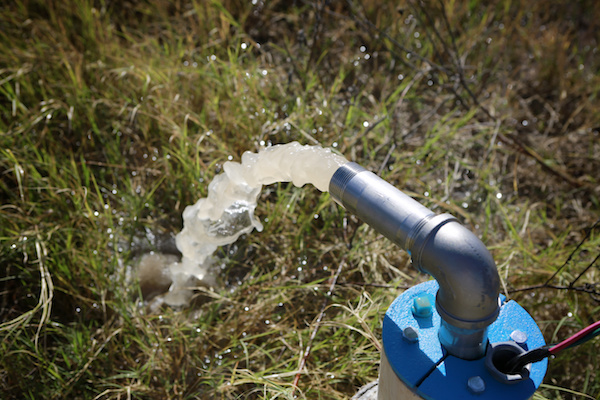MADISON — Clean Wisconsin expressed renewed concern on Thursday after researchers for the Southwest Wisconsin Groundwater and Geology (SWIGG) study released results showing that over 9 in 10 sampled wells in Grant, Iowa and Lafayette Counties that tested positive for coliform bacteria in prior sampling rounds contained fecal matter.
“These latest results are clear: many residents in Southwest Wisconsin are drinking contaminated water that puts their health at risk,” said Scott Laeser, Water Program Director for Clean Wisconsin. “Results like these confirm that lawmakers need to move quickly to find solutions that get residents clean, safe drinking water in Southwest Wisconsin.”
Researchers found that of the 35 wells that tested positive for coliform bacteria or nitrate above the health level of 10 parts per million (ppm) in previous sampling rounds, 32 tested positive for containing fecal matter from cows, swine or humans. Because of the fractured bedrock, researchers have noted that well conditions can change quickly, with contaminants coming and going over short time spans.
Pathogens linked to serious illnesses, such as Salmonella, cryptosporidium, and rotavirus, were detected in drinking water. These illnesses can cause fever, vomiting, diarrhea, and abdominal cramps.
“Like nitrate pollution, this bacterial contamination can be odorless and tasteless but still present a health risk,” said Laeser. “People shouldn’t have to play roulette with their health when they get water from their taps, but that’s what the data show.
“Far too many people in Southwest Wisconsin have polluted well water, and it’s a serious issue regardless of where the contamination is coming from,” said Laeser. “This is a multifaceted problem that needs an all-of-the-above approach by lawmakers. Tackling only septic system leaching or farm runoff—and not both—is an approach that will fail to fully solve the problem.”
As the Speaker’s Task Force on Water Quality continues to hear from experts and citizens about well water contamination, these results should compel them to take meaningful, substantive action.
“People in Southwest Wisconsin need clean drinking water, and these results are only the latest data point showing that many do not have that simple but critical resource,” said Laeser. “If the Water Quality Task Force is serious about clean drinking water, they will put forth bold solutions that protect people from bacterial and nitrate pollution, regardless of where it’s coming from.”

